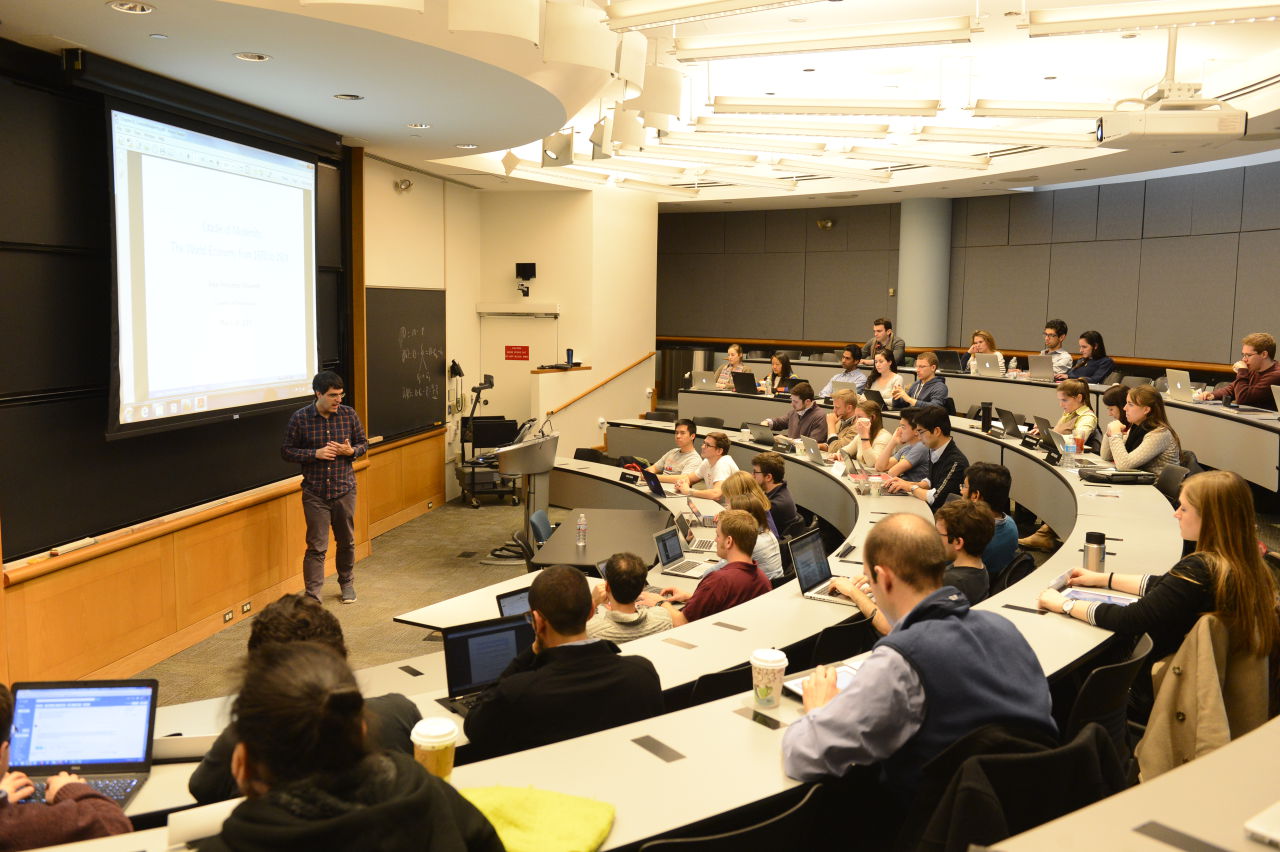At many competitive campuses, the consulting and finance industries recruit more college seniors than almost any other industry. Barbara Hewitt, who is the senior associate director of career services at the University of Pennsylvania, and Alexandra Michel, a professor of organizational studies at UPenn, speak with Here & Now's Indira Lakshmanan about how consulting and finance firms manage to attract so many college seniors at colleges nationwide.
No matter how many career fairs they've attended or mock interviews they've endured, college undergrads are no match for the consulting and finance recruiters that flood the elite college campuses each fall.
The finance and consulting industries are known as much for their glamour as for their ruthless work hours. But despite increased media scrutiny on several high-profile suicides by finance employees in the past two years, consulting and finance firms have long been poaching more college seniors than almost any other industry.
At Harvard, for example, more than 33 percent of employed seniors in the class of 2015 accepted offers in finance and consulting. At the University of Pennsylvania, 17 percent of seniors in the class of 2015 went into consulting, and 30 percent went into finance.
“Consulting has a very high presence on campus. A lot of the firms recruit quite heavily at Northwestern,” said McCall Vollum, an entrepreneur based in San Francisco. She became a consultant for what is now known as Strategy& after studying engineering at Northwestern.
Consulting can seem like an ambiguous career direction: it's usually defined as the field in which independent industry experts are hired to help companies solve their most difficult problems.
Consulting firms usually recruits from competitive college campuses in the fall, before other industries can get to them. They have the financial resources to host fun events, coffee chats and info sessions on or near college campuses.
Applicants are encouraged to attend these events, and successful applicants must make it through several rounds of interviews before receiving an offer. Vollum said consulting is especially attractive to students who aren't sure what they want to do after college.
“At the other entry-level engineering positions I was looking at,” she said, “I didn't feel that I would have that same level of impact. In consulting, you could be a 21, 22-year-old, fresh out of college, and right away you could be in a board room with CFOs, CEOs of Fortune 50 companies.”
Vollum said her two-year experience as a consultant was essential to her current job as CEO of an app company, because it helped her be both detail and big-picture oriented. But she was honest with Northwestern applicants who attended coffee chats with her when she represented her firm at her alma mater.
“At [Strategy &], we would pull all-nighters, which is not uncommon. And it varied by project, but it was not unusual to work 18, 20-hour days,” she said. “Basically, how it works is that you have very demanding clients that are constantly changing the scope on you. And you as a company are wanting to under-promise and over-deliver on everything.”
As these industries continue to vacuum up graduates at leading industries, some have expressed disappointment.
Harvard economics professor Sendhil Mullainathan wrote an op-ed in The New York Times in which he called students who went into finance “rent seekers” or, those who instead of spreading wealth transfer it to themselves from others.
At the same time, many finance firms are looking to improve the work-life balance of their employees, after some suspected that high-profile suicides of several employees in 2014 were caused by stress. Several firms have announced that they would force employees to take Saturdays off. This summer, Goldman Sachs announced that the company would mandate that interns return home by midnight and not return to work till 7 the next morning.
But for now, none of this has seemed to deter college students. Next year, the next batch of polished seniors of all majors, who were wide-eyed freshmen just a few years ago, will be at it again – dashing around campus in their business suits, arming themselves with leather padfolios in hopes of being hired by prestigious consulting and finance firms.
Guests
- Barbara Hewitt, senior associate director of career services at the University of Pennsylvania.
- Alexandra Michel, a professor of organizational studies at the University of Pennsylvania. She tweets @alexandra_em.
9(MDE1MTIxMDg0MDE0MDQ3NTY3MzkzMzY1NA001))
300x250 Ad
300x250 Ad
